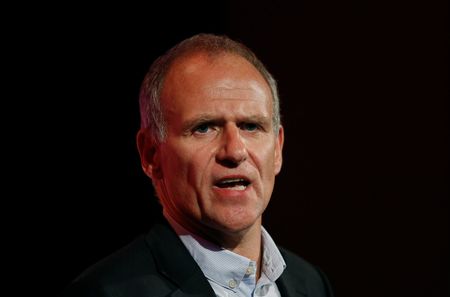By Maria Martinez and Rachel More
BERLIN (Reuters) -The German government’s net borrowing rose in 2024 to 118.8 billion euros ($124.4 billion), higher than initially reported, preliminary data from the federal statistics office showed on Tuesday.
The deficit was 15 billion euros higher than the prior year, corresponding to 2.8% of gross domestic product, the office said, up from the 2023 figure of 2.5% of GDP.
The European Union’s fiscal rules, known as the Stability and Growth Pact, set a limit of 3% on government deficits, a level that countries such as France, by comparison, have exceeded for years.
Germany’s government revenue in 2024 stood at 2,012.9 billion euros, topping the 2-trillion-euro mark for the first time.
But expenditure still outpaced growth in government revenue, as it spent greater sums on social benefits, the statistics office said.
Germany’s conservative CDU/CSU bloc, tasked with forming a government as the winner of Sunday’s election, has promised extensive tax cuts but a period of policy uncertainty lies ahead as thorny coalition talks get under way.
Other parties have criticised the CDU for not spelling out how all its promised tax cuts would be financed.
The full CDU reform programme would reduce state revenue by 97 billion euros per year, economic institute Ifo has predicted.
A monthly report released on Tuesday by the finance ministry said Germany’s federal and state government tax revenue rose by 8.9% in January on the year, to 66.7 billion euros.
The report also warned that forward-looking economic indicators continue to reflect a difficult situation. Europe’s ailing largest economy is under pressure after it contracted in 2024 for the second year in a row.
Two major economic institutes are already forecasting a third year of contraction in 2025, which would be the longest period of weakness in Germany’s post-war history.
For 2025, tax experts see tax revenue increasing to 893.8 billion euros, up 3.8% from the previous year, according to the ministry report.
($1=0.9547 euros)
(Reporting by Maria Martinez and Rachel More; Editing by Ludwig Burger and Clarence Fernandez)










